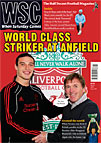 Paul Buller attended a fiery discussion about the responsibilities of UK sports reporting, and left with some questions of his own
Paul Buller attended a fiery discussion about the responsibilities of UK sports reporting, and left with some questions of his own
The question “What’s wrong with sports reporting?” might elicit the immediate response “Where do you start?”, but on a chilly January night in London the great and the good of sports journalism gathered at a Royal Television Society event to debate just that. Many familiar faces from the back pages filled the audience alongside broadcasters, students and inquisitive fans. A fiery encounter ensued, with football being the main catalyst for the arguments made by a heavyweight panel.
Presenting the case for the prosecution were Andrew Jennings, the man responsible for the BBC’s Panorama FIFA revelations, and Tom Bower, author of the investigation into corruption in English football, Broken Dreams. Given only seven minutes each to present their cases, the arguments were unremittingly to the point.
It’s an issue football fans constantly wrestle with: why do we read the same Premier League propaganda in each paper, the same clubs highlighted week after week; clubs’ dealings are rarely under scrutiny before it’s too late and too many people in football get away with too much. This was the central, and most contentious, tenet of Jennings’s and Bower’s case: journalists are failing to hold clubs and authorities to account, with Jennings being particularly scathing about what he perceived as the media’s reluctance to follow up or support his FIFA exposé until after the event, in case they were accused of “damaging the 2018 bid – which we were never going to win anyway”.
The murmurs from the audience were already audible by the time panel members Ashling O’Connor, sports news correspondent of the Times, and former head of BBC sport Roger Mosey weighed in on behalf of their trade. O’Connor countered that the Sunday Times investigation uncovering FIFA corruption had been just as valid; that journalists were doing a remarkable job considering financial constraints and pointed to past FA revelations and David Conn’s investigative work for the Guardian as examples of what journalists can achieve. Mosey assured everyone that “relationships” with clubs never get in the way of journalism.
A moment of contemplation descended upon the lecture hall as the audience took in the facts. But, being mostly journalists, the audience had taken Jennings’s argument rather personally.
The Mail‘s Charles Sale was especially vexed. Having tweeted “Andrew Jennings a shambolic wreck talking garbage at RTS debate” before Jennings had even sat down, he followed it up with a good old-fashioned ding-dong across the lecture hall with his protagonist, arguing that his paper had a hand in the downfall of several FA figures and that could only be a good thing. Jennings and Bower complained that exposing tepid affairs with secretaries was not exactly “sports” reporting.
Many journalists were genuinely offended at the suggestion they are lap dogs of the footballing authorities, possibly none more so than the Daily Telegraph‘s chief sports reporter Paul Kelso, who, red faced and angry, took several minutes to outline how reporters are in fact working harder than ever. For all Sale’s bluster, Kelso’s point was a valid one – whether or not we agree with newspapers’ choice of coverage we have, in fact, never had it so good. Spend an hour or so at the British Library’s excellent archives and you’ll find football in the mid-1980s taking up barely more than a page, with scant match reports and only the odd opinion piece. These days, sports sections abound and, with more pages to fill, at least some of them will be devoted to questioning the business of football. As was pointed out, the simple fact that journalists in the UK are able and willing to debate how they go about this can only be healthy. While watching our top reporters slug it out in a lecture hall may be a little unedifying, it proves there is at least still fire in their bellies.
But there was one question that couldn’t be answered that night – the majority of journalists attending were noticeably in or approaching middle age, or in their 20s. Maybe the 30-somethings were all out working, but there is known to be a glut of people in their 30s leaving the media because the work is no longer financially sustainable. With newspapers slashing wages, clubs’ PR departments lording it and the penchant for employing ex-players as reporters rather than pundits becoming more prevalent, the next generation may simply not have the time or inclination to ask the questions that football doesn’t want asked. And if that happens, we really will wonder what’s wrong with sports reporting.
From WSC 289 March 2011